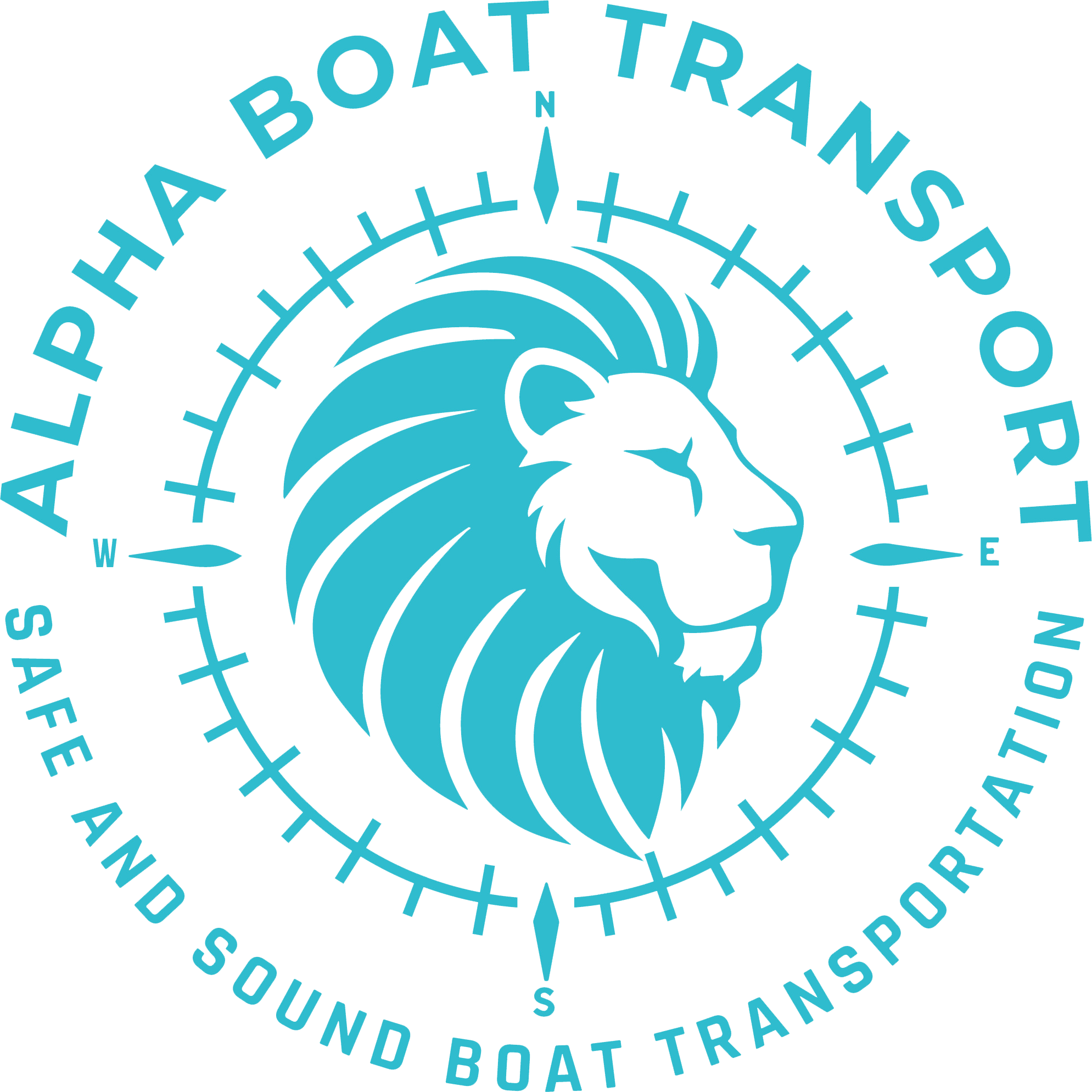Tightened Boat Regs Hike Costs: What Every Boat Owner Needs to Know in 2025
Listen, here’s what’s really going down with the new DOT regulations in 2025—over 60% of U.S. states tightened their boat transportation rules practically overnight. For vessels over 8.5 feet wide, you’re not just looking at a permit—you’re navigating a logistical landmine that could blow your budget and delay your delivery.
According to Heavy Haulers, regulatory shakeups like Florida dropping max boat height from 16 feet to 14’6”, or Texas requiring front and rear escorts for boats wider than 12 feet, have completely changed the game. If your shipment’s not planned down to the escort details, you’re in for a tough ride. But don’t sweat it—this report breaks it all down. From smarter trailer builds to cutting-edge AI route planning, I’ll show you what to expect, how to work the system, and why companies like Alpha Boat Transport are making the chaos manageable.
How the New Regs Affect Your Boat Transportation Services
As most experts agree, these new size restrictions and permit processes aren’t just bureaucratic hoops—they’re real obstacles that put your transport timeline and wallet on the line. Here’s the kicker: If your boat is even a sliver over 8.5 feet wide, you’re officially in oversize territory.
Take New York. The state now caps boats at just 8 feet wide without a permit, meaning nearly every powerboat and live-aboard sailboat needs additional documentation and delay-prone route planning. Florida requires formal route surveys for any boat taller than 14’6”, adding cost and holdups. And if you’re trying to cross Texas with a boat wider than 12 feet? You’ll need front and rear escort vehicles. That’s two extra contractors on your bill.
This ain’t a game. Your choice of boat transportation services must take all this into account. Alpha Boat Transport has already adapted to these new rules, with regional teams trained in updated state-by-state regs so your shipment doesn’t end up parked in a DOT holding yard.
Check out how data-driven processes are improving routing efficiencies across changing regulation zones.
Boat Hauling Costs Surge in 2025: It’s Not Just About Fuel Anymore
As you probably guessed, costs in boat shipping aren’t just about diesel anymore. It’s the permit stacking, contingency planning, and regulatory loopholes that’ll hit you where it hurts. States with narrow road allowances force costly detours. Add in height-restricted bridges, weigh stations, and travel hour bans (some states don’t let oversize boats move after 5 pm Fridays), and you’ve got delays with dollar signs.
According to industry insiders, permit fees alone in high-regulation states like California and New Jersey have doubled in just two years. Trailer wear and tear is higher too—axle stress piles on uneven roads or tight shoulders, leading to more maintenance and downtime.
The real deal? The hauler you choose better be ahead of this. Alpha Boat Transport’s adaptive planning systems now feature AI-powered smart routing to bypass wait-heavy zones and identify alternate routes with automated permit prep built in.
Learn how planning like this integrates with customized logistics solutions that drive delivery efficiency.
Trailer Tech You Never Knew You Needed (But Do Now)
You wouldn’t move a high-end car on a rusty dolly—and your 32-footer deserves the same respect. The right trailer keeps your boat’s hull, engine, and hardware protected from stress fractures during the haul. In 2025, self-adjusting hydraulic trailers are the MVP, especially when navigating varied terrain.
Alpha Boat Transport is all-in here. They’ve upped their game with hydraulic lifts that compensate for axle strain, ensuring smoother transfers at embark or drop-off. This matters. Axle stress not only compromises the trailer—it puts your boat’s structural integrity at risk.
These innovations reduce friction damage, suspension overload, and help conform to recent interstate boat shipping limits requiring balanced weight distribution. Most smart haulers have upgraded—laggards are out of business or should be.
Explore why quality haul gear is just as vital as compliant paperwork by reading equipment ROI analysis compiled from logistics companies nationwide.
AI Route Planning is the Game Changer in 2025
Let me tell you something—if your hauler’s route plan isn’t AI-optimized, you’re already losing. There’s over 4 million miles of roadways in the US, and AI tools help distinguish the 2% that matter for your boat transport.
Companies like Alpha Boat Transport now run advanced route analyses that account for weight-restricted bridges, seasonal bans, toll lane rules, and even temporary construction zones. They proactively reroute around urban no-go zones and low-hanging bridges that basic GPS might overlook.
As everyone in the industry is learning, there’s no room for guesswork. Automated route updates save hours—a 10-hour delay at a weigh station or narrow corridor can cost hundreds in idle labor and permit replacement.
Learn why automation in logistics is now the new quality bar by checking trends in emerging transport automation.
Insurance Isn’t a Checkbox—It’s Your Financial Lifeline
Here’s the real deal with boat transport insurance. Your standard boat policy often doesn’t cover overland shipping. That leaves a gap—one mishap on the interstate and you could be holding the bag for thousands.
It’s why haulers like Alpha Boat Transport make sure customers get clear transport coverage details upfront. We’re talking verified cargo protection, on-road liability, and supplemental coverage for overnight storage. With permits and escorts now mandated across multiple states, the risks of the trip have increased. Insurance can’t be an afterthought anymore.
Most haulers have coverage—it’s about whether it’s adequate. Cheap quotes often mean cheap carriers with bare-bones policies. And without full coverage, no regulator is backing you when damage claims arise.
Review related protection practices with industry compliance breakdowns based on current liability trends.
Preparation Steps Boat Owners Overlook That Lead to Delays
You’d be shocked how many delays come from a single missed form or an incorrect boat measurement. Listen, these are multi-state hauls—not Sunday drives. Failing to account for accessories like radar arches or outriggers can tip you over legal height or width limits, totally invalidating your initial permit.
Boat owners should verify:
- All measurements (with add-ons included)
- Trailer roadworthiness—tires, lights, brakes
- Proper shrink wrap or highway-speed transport covers
- Drainage of all fuel and water tanks
- Title copies and current registration
Your transport company should provide a pre-check list, not just a quote. Alpha Boat Transport emails customers a region-specific transport checklist customized for your vessel dimensions, origin state, and final route.
For broader logistics insights, dive into this comprehensive info set for effective preparation planning.
Frequently Asked Question
What qualifies as an oversize load in boat transportation services?
Any boat over 8.5 feet wide or taller than 13.5 feet typically qualifies as oversize in most states. As new highway codes emerge, some states now classify anything over 8 feet as oversize.
Do I need a permit to ship my boat across state lines?
Yes. If your vessel exceeds standard dimensions, you’ll need state-specific permits, which vary depending on height, width, and weight. Most boat transportation services handle this for you, but it must be coordinated ahead of time.
How long does it take to get boat transport permits?
Permit times range from 1 to 5 business days depending on the state and load size. States like New York and California have longer processing for wide or tall boats, especially those above 12 feet wide or 14 feet high.
What trailer type is best for overland boat shipping in 2025?
Hydraulic self-leveling trailers are now standard for high-value shipments. They balance loads on uneven roads and reduce axle stress—critical with new weight distribution rules across states.
Does transport insurance cover all possible damages?
Standard transport insurance typically covers liability and structural damage from company fault. However, it may not cover weather, vandalism, or insufficient prep. Confirm coverage details with your provider.
What if my boat is stored overnight mid-shipment?
Stored boats should be in secured lots with surveillance and short-term insurance coverage. Reputable companies like Alpha Boat Transport include this in their logistics planning.
Are weekend shipments allowed for oversize boats?
Many states prohibit oversize load moves on weekends or require special permits. Your hauler must plan around this to avoid fines or impounds.

